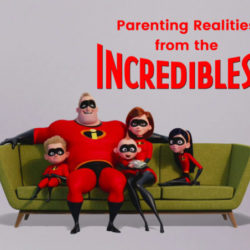Photo by Rachael Crowe on Unsplash
I am thankful that our company, Acumen Strategy Consultants, decided to invest in research among the Gen Zs this year. This generation are our kids, those aged 4 to 22 now. Focus group discussions were done across the country, followed up by a quantitative survey among both Gen Zs and Gen Ys (Millennials). It was finished early this month, so it is quite fresh.
When the results came back, I had mixed emotions as a parent. There is a lot of hope, but also a lot of work for us – daunting work. We need to buckle up and make a serious commitment to be involved in their lives. Here are some of our findings:

To Gen Z, the digital life is as essential to life as living and breathing. By the time Gen Z came into being, digital technology was already optimal, social media apps were launched and smartphones were invented. So when the eldest of their generation became adolescents, Wi-Fi, Facebook, Instagram, Snapchat, smartphones, 3G/4G all existed. Thus, digital is already integrated into their concept and being, and life without the internet is simply unimaginable. It’s like a heart, like oxygen – essential to life. “Without the internet I will die” said one of the research respondents.
Gen Zers are ultra-connected and operate in hyper-speed. Their world is big and expansive, and therefore very different from ours. There are new forms of expression and socialization. They have many more worlds/groups whom they rely on for support and validation – both online and offline.
They are expansive learners, acquiring knowledge and skills beyond what is taught in the classroom.
They expect things to be instant and fast. That everything and everyone is easily accessible has become a basic expectation.
Gen Zers are keenly aware of the problems of the world because they see it real time in social media or online. It may look that it is a pretty exciting and happy life. Yes, they are happy overall. But, they do not view the world with rose-colored glasses. In fact, their life can be tough. Because they are ultra-connected and hyper-informed, they see all the bad, all the adult conversations.

Belonging is a critical issue. There are also now measures of not belonging or being ignored – likes, comments, followers, or being “seenzoned” – all in full view of the world. In our time, if we get ignored, only our family or friends would know of it. Now, the whole world can see! This has deep emotional impact, because one of the most important needs during this life stage is to belong.
Family is central to their lives. What struck and alarmed me the most is this: the research validated that 94% say that family is important. Their top aspiration is to make their parents proud, and their top fear is that their parents separate or the family falls out.
But, sadly, the family is not as present in their lives or are as close them as they want to be. Our researcher concluded that the family and home is not fulfilling a lot of the emotional needs of Gen Zs. The reason? Here are some: Parents don’t understand them, but instead judge them. Parents have high expectations of them. They sometimes have dysfunctional family structures.

The most common pain point is the lack of availability of parents. Because they grew up in a world where they can get access to almost anything through the internet, if family is not as easily accessible, then it creates a bigger gap than the typical “generation gap” that happens between parents and teens.
This is one urgent task before us parents. If we do not create the kind of relationship with our Gen Z kids where we are there for them emotionally and physically, then I am afraid we can easily lose them in their many worlds. Thankfully, they still value family. But there is more effort needed from us.
To exacerbate this, the research also found that religion or faith is not considered as important among Gen Zs compared to millennials. This was one of the few values that were significantly different between the two digital generations.
The hopeful part is that Gen Zs approach life with maturity and hyper-empowerment. One manifestation of maturity is the desire to be guided and to know the rules, even as they want to exercise their freedom.
They are also champions of change: they combine their youthful idealism with available digital platforms that allow for free expression and ability to rally similar-minded teens.
They know that their main weapon to bring about change is education, and they now make more conscientious career choices, where they aspire to pursue professions that would help bring about the societal change that envision.

They have an overall filter of purpose, meaning and authenticity. Life purpose and meaning are a major driving force in their lives and an important filter they use in choosing what to do and how to act. They choose what they hear, what they believe in, and what they say. They seek only what’s authentic and call out others who are not being real.
Indeed, there is a lot of hope. But also, a lot of work to be done:
We need to nurture their positive mindsets by making the effort to understand them, suspending judgment and recognizing that the world they grew up in is vastly different from ours.
We need to be more present in their lives because they do need guidance and boundaries – and they know this.
Their hearts and minds have purpose, meaning, and authenticity so ingrained. And all these can be harnessed to bring about the best in their generation, and even change the world.

Pauline Gatera Fermin is a high-caliber strategy executive with 20 years experience working for P&G, The Coca-Cola Company, and Beverage Partners Asia, and 10 years consulting experience across various industries in the Philippines. She is part owner of Acumen Strategy Consultants, where she serves as Managing Director and Senior Strategist.
Related Posts
-
5 Parenting Realities from the Incredibles 2
One of the successes of the Incredibles 2 is carefully yet aptly depicting the challenging…
-
Rainy Season Reminders
Make sure that you and your family stay safe and protected this rainy season!
-
Family Friendly Weekend Flicks
Get the popcorn ready and enjoy these amazing movies with the family this weekend!



